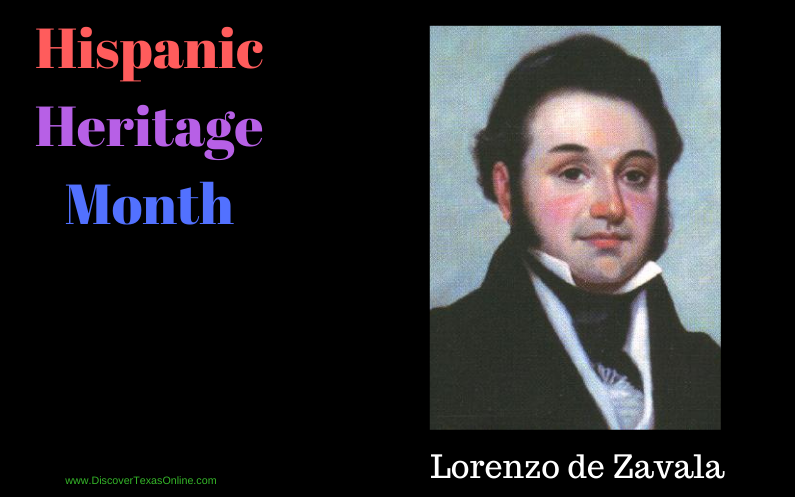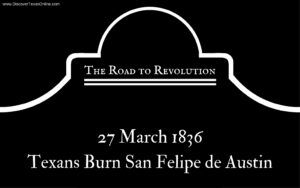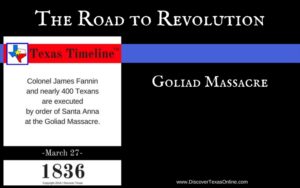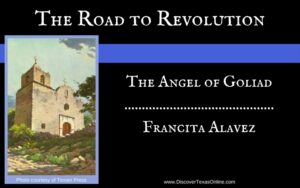
Manuel Lorenzo Justiniano de Zavala y Sáenz was born October 3, 1788 in Tecoh, Yucatán. His family had lived as colonists in Spanish Mexico for three generations.
He was a well-educated man, fluent in Spanish, Latin, French, and English. He studied theology, classical philosophy, political economy, and medicine, but it was his study and advocacy of French Enlightenment philosophers that got him thrown into a Spanish prison.
A passionate believer in independence, de Zavala was active in politics when Mexico gained independence from Spain. It was de Zavala who petitioned the Mexican congress to give grants to Anglos as well as Mexicans to colonize Texas, but when Santa Anna imposed harsh controls on Texas colonists de Zavala joined the cause for Texas Independence.
The fiery Tejano once said, “If I knew my death would assure the liberation of Texas, I would not live another hour.” He did not fight on the field of battle, but in the arena of politics where he was most qualified. De Zavala was at Washington-on-the-Brazos to sign the Texas Declaration of Independence on March 2, 1836, and he later helped draw up the Constitution of the Republic of Texas. In respect for his legislative, executive, and diplomatic skills, his fellow delegates elected him interim Vice President of the new Republic of Texas Under interim President David G. Burnet. He served from March until October 1836.



